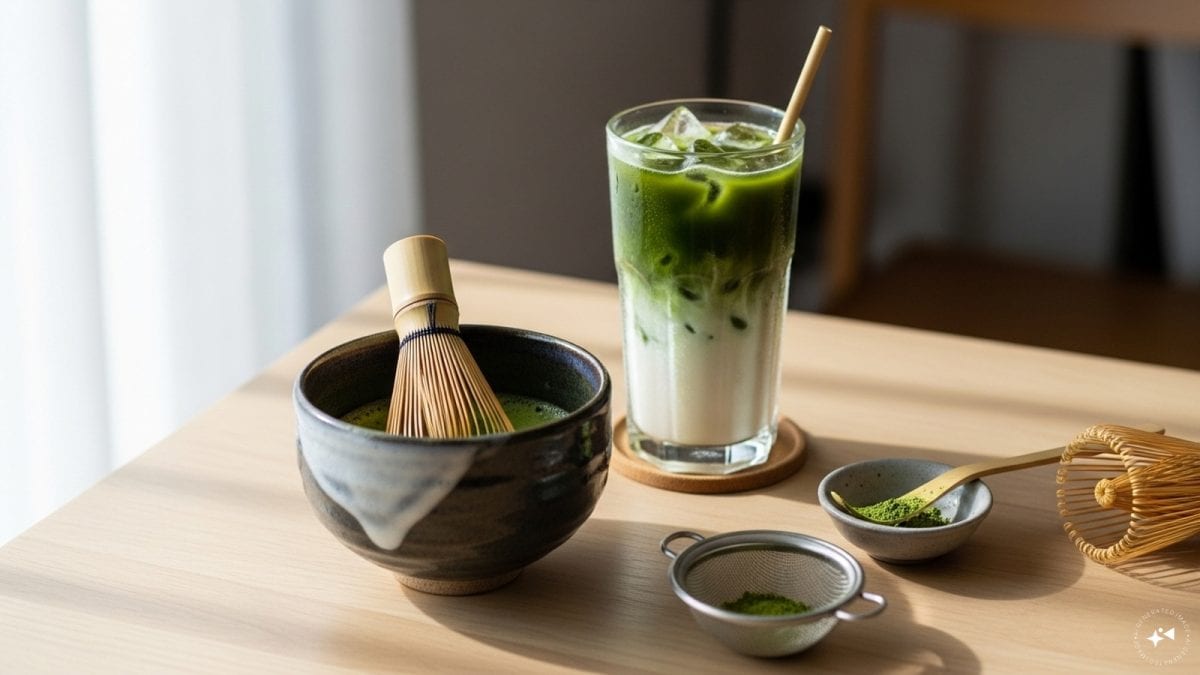Last Updated:
Matcha is promoted for its health-giving effects such as, improved metabolism, improved concentration, and strengthened immunity

Matcha’s Dark Side: How Your Morning Ritual Could Be Disrupting Hormones and Fertility
Matcha tea is a fine powder that is made from green tea leaves that are cultivated in a specific manner. It has gained immense popularity across the globe due to its antioxidant-dense nutritional content and distinctive flavor. Matcha is promoted for its health-giving effects such as, improved metabolism, improved concentration, and strengthened immunity.
“One of the questions asked by individuals planning pregnancy or attempting pregnancy is: does matcha affect fertility? So let us look into matcha consumption and fertility myths and facts,” says Dr. Firuza Parikh, Director, Well Women Centre, Sir HN Reliance Foundation Hospital, Mumbai.
Is Matcha Safe When Trying to Get Pregnant?
If you are attempting pregnancy, moderate matcha consumption usually is completely safe. “Matcha does have caffeine, but typically less than one cup of coffee, and also has antioxidant-rich compounds known as catechins and polyphenols to help an individual’s health. Basically, experts recommend that individuals should take in caffeine content between 200 to 400 mg daily, or roughly 1 to 2 cups of green tea and/or matcha. If you fall within that bracket, you can enjoy the antioxidant benefits of matcha without overloading on caffeine which could have adverse effects on your well-being,” adds Dr Parikh.
However, let us be clear that excess caffeine consumption should be exercised carefully. High levels of consumption can enhance the risk of fertility complications through interference with hormone control and ovulation periods. As matcha’s caffeine content adds up very fast (most notably through daily multiple servings and cumulative servings; i.e., lattes or supplements), we need to monitor excessive intensity consumption of matcha.
Does Matcha Affect Fertility?
Despite matcha’s antioxidant health advantages, excessive caffeine content creates issues for fertility at high dosages. “For women, excessive consumption of caffeine has been linked to disruptions in hormonal equilibrium, which can impact ovulation (egg release for the ovaries), and ovulation issues may result in lowered probabilities of conception and issues with becoming pregnant,” shares Dr Parikh.
In men’s studies, it has been proposed that high levels of caffeine use will be detrimental to the quality of sperm, and reduce sperm motility and sperm count. While the antioxidants in matcha would be beneficial in preventing oxidative damage to sperm cells, the ill effects of too much caffeine can counter any benefits experienced with an antioxidant.
It should be mentioned that normal amounts of caffeine use are safe for the majority of individuals attempting to conceive. Regularly using more caffeine than normal, simply increases the risk for fertility problems.
Safe Daily Limits for Pregnant and Expectant Women
In the case of caffeine intake for pregnant or planning-to-be-pregnant women, managing consumption is particularly crucial. International health organizations suggest limiting caffeine consumption to up to 200 milligrams per day, which may lower the potential risks of miscarriage or developmental issues. As matcha does have a certain amount of caffeine content, it needs to be counted under the daily limit.
Reduction of matcha to 1-2 cups per day or approximately 200-400 mg of caffeine serves to reduce adverse side effects and aids your healthy pregnancy. Always have a consultation with a healthcare provider regarding caffeine intake and food options in your pregnancy and conception process.
Balancing the Benefits of Matcha Against Risks
Though matcha does have antioxidants that are good for your overall health (some of which are better metabolism and less inflammation, both of which are vital to overall health), when it comes to fertility, the benefits must be balanced against the hazards of caffeine. Having matcha in moderation allows you to receive the antioxidant benefit without affecting your reproductive health.
“If you want to reduce caffeine but not eliminate your antioxidants, consider alternatives, like decaf green teas or herbal teas,” signs off Dr Parikh.

Swati Chaturvedi, a seasoned media and journalism aficionado with over 10 years of expertise, is not just a storyteller; she’s a weaver of wit and wisdom in the digital landscape. As a key figure in News18 Engl…Read More
Swati Chaturvedi, a seasoned media and journalism aficionado with over 10 years of expertise, is not just a storyteller; she’s a weaver of wit and wisdom in the digital landscape. As a key figure in News18 Engl… Read More
view comments
Read More






